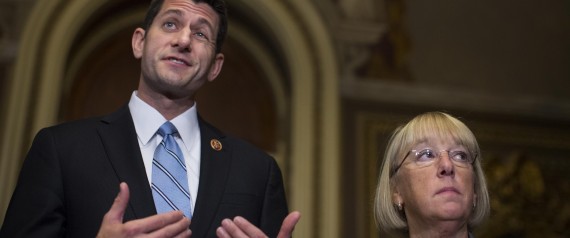With The Lights On, 99 Senators Voted Against Wall Street. The Lights Went Off And They All Fled
Posted: 12/17/2013 8:30 pm EST

The provision, aimed at institutions with more than $500 billion in assets, was sponsored by Sen. David Vitter (R-La.), and passed the Senate in March by a 99-0 vote in a show of lawmakers’ reluctance to be tagged as big-bank sympathizers. At the time, some three years after lawmakers and the Obama administration passed the Dodd-Frank financial reforms into law, Washington was gripped by a debate over whether the largest U.S. financial institutions remain so important to the financial system that policymakers would never allow them to fail.
Though largely symbolic in nature, proponents of the measure used the vote to rally support for congressional and regulatory efforts to break up the biggest banks on the grounds that the subsidies amount to an unfair earnings advantage not available to smaller banks. Goldman Sachs, JPMorgan Chase, Bank of America, Citigroup, Wells Fargo, Morgan Stanley, American International Group and General Electric Capital are the eight U.S. financial institutions with sufficient assets to fall under the measure, Federal Reserve data show.
Banks, including Goldman Sachs, produced research rebutting claims that the biggest financial institutions enjoy special subsidies. The Treasury Department also weighed in, questioning whether big banks enjoy lower funding costs as a result of their alleged too big to fail status. The resistance helped stall any momentum in Congress for additional legislation targeting the banking behemoths.
Their alarm followed Vitter’s so-called “sense of the Senate” measure that did little more than convey lawmakers’ view that the federal government should somehow stamp out subsidies or taxpayer-conferred benefits that allow giant banks lower funding costs than their smaller competitors. It passed as an amendment to legislation detailing Senate Democrats’ budget priorities for the 2014 fiscal year.
Despite the unanimous vote in the Senate, congressional negotiators declined to include it in the bipartisan budget deal hammered out by Sen. Patty Murray (D-Wash.) and Rep. Paul Ryan (R-Wis.). Instead, negotiators included a measure sponsored by Sen. Jeff Merkley (D-Ore.) that effectively declares that no bank should be too big to jail.
No one has explained why.
Sen. Sherrod Brown (D-Ohio), one of three lawmakers to co-sponsor Vitter’s amendment, said, “The budget deal provided Congress with a chance to address the problem of ‘too big to fail’ banks and the unfair taxpayer subsidies they receive. It failed to do so.
“Our amendment was approved 99-0 in the light of day, and then removed in the dark. It should have been included in the budget deal,” Brown added.
William Allison, a spokesman for Ryan, and Eli Zupnick, a Murray spokesman, declined to comment.
The House of Representatives approved the budget legislation last week. The Senate is likely to pass it this week. President Barack Obama is expected to sign it into law.
In 2009, while remarking on a losing legislative battle against banks that would have allowed homeowners to discharge some mortgage debt in bankruptcy, Sen. Dick Durbin (D-Ill.) said, referring to the Senate, that banks “frankly own the place."
Congressional aides offered a variety of reasons why Vitter’s amendment was not included. Some said the measure was not appropriate to legislation outlining the federal government’s spending priorities, and budget negotiators tried to limit non-budget measures included in the bipartisan deal struck by Ryan and Murray. Others opined that because Vitter, a Republican, was its primary sponsor, Murray perhaps was less apt to fight for it in negotiations that sought to balance Senate Democrats’ priorities with those of the Republican-led House.
Adding to the confusion was the inclusion of Merkley’s provision, which is largely an expression of the Senate’s dissatisfaction with federal prosecutors’ settlements with big banks.
While it’s unclear how Merkley's measure could force the Department of Justice to criminally charge a large bank for suspected wrongdoing, Vitter’s amendment could set the stage for additional legislation, such as the forced restructuring of the nation’s largest financial institutions. Had it been included in the budget deal, it likely would have garnered further public attention to the joint efforts of Vitter and Brown to level the playing field between the nation’s biggest banks and their smaller rivals.
The Independent Community Bankers of America, a Washington trade group that represents small banks, wishes Vitter’s measure was included in the deal. The organization is among the biggest backers of Vitter and Brown.
“We are 110 percent behind their legislation,” said Paul Merski, the group's executive vice president for congressional relations and chief economist.
Vitter and Brown “really kicked off a robust debate into too big to fail,” Merski said. The duo also have proposed legislation that would require the biggest banks to fund their assets with significantly more equity capital, a move some likened to a back door effort to break up the banks because the amount of capital required would be so expensive that banks likely would choose to shrink instead.
According to Merski, the efforts of Vitter and Brown played a role in regulators’ recent moves to levy tougher standards on big banks, and prompted other lawmakers to reconsider their views on the issue. The 99-0 vote is proof of that.
“They kept this thing alive,” Merski said of Vitter and Brown and the debate over too big to fail. “We would have liked to see the Vitter amendment included in the budget deal, but this issue is not going to go away.”
